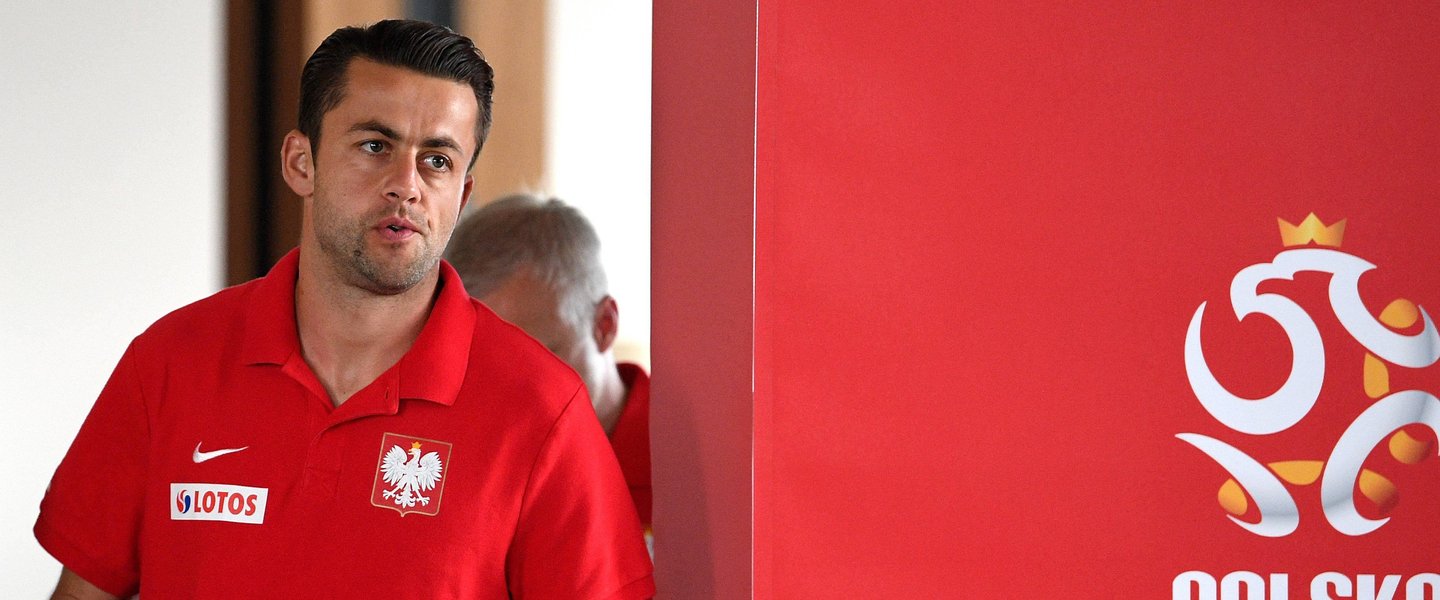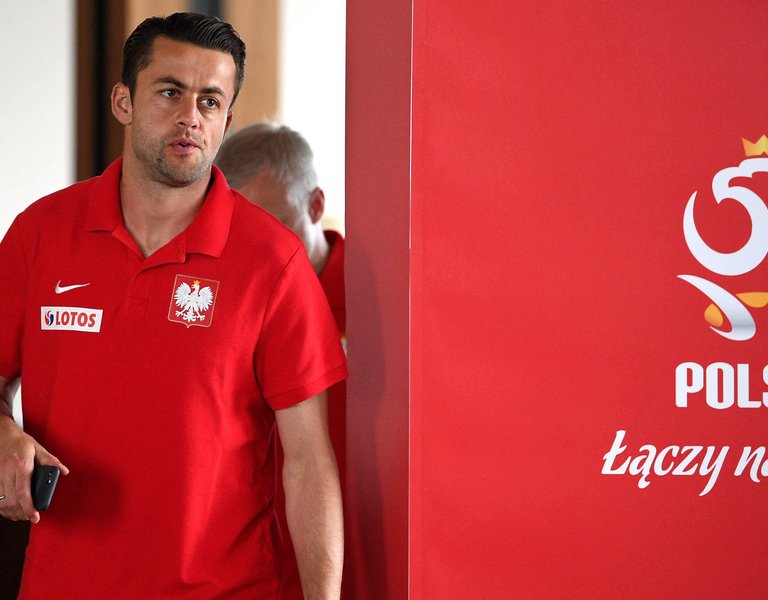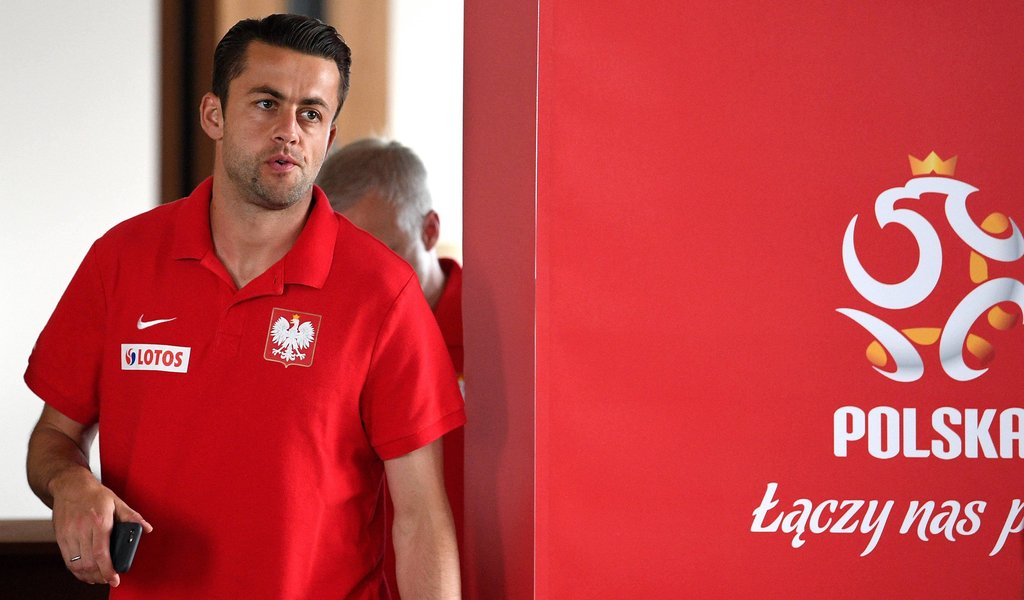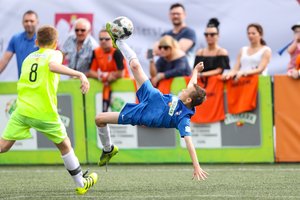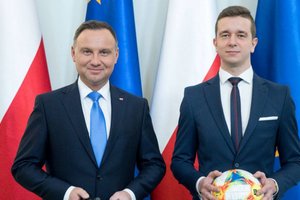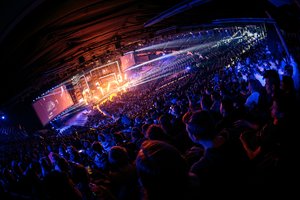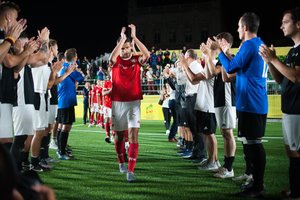The hardships of Łukasz Fabiański
As a talented 21-year old, Łukasz was called up as a reserve goalkeeper to the national team by manager Paweł Janas to play in the (2006) FIFA World Cup in Germany. This unexpected turn of events was not the beginning of the young footballer’s career lucky streak.
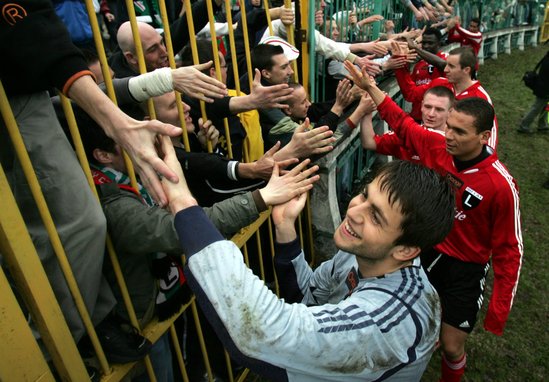 Older supporters still remember the circumstances in which Janas selected his World Cup team. The whole selection was turned into a huge television show by Polsat TV station, which broadcast the actual presentation of players. It was all rather strange as Janas was known not to be a media man and rather shy in his contacts with journalists, whom he either avoided or simply stalled. There is a well-publicised story of how he sent a cook to a press conference in his place – an event that has gone down forever in the history of Polish football.
Older supporters still remember the circumstances in which Janas selected his World Cup team. The whole selection was turned into a huge television show by Polsat TV station, which broadcast the actual presentation of players. It was all rather strange as Janas was known not to be a media man and rather shy in his contacts with journalists, whom he either avoided or simply stalled. There is a well-publicised story of how he sent a cook to a press conference in his place – an event that has gone down forever in the history of Polish football.
At the time, the Polish Football Association (PZPN) was not managed in a modern way. It was more like an old-time sports club full of football activists from way back when. Things like the image of football, marketing, and public relations were not exactly top priorities. Furthermore, there wasn't anyone sharp enough to tell Janas about the absurdity of making his World Cup squad selection part of a television spectacle. Especially given that his final selection was a complete surprise to all.
The biggest one was, of course, the decision to skip over Tomasz Frankowski and Jerzy Dudek. Particularly the omission of the Liverpool goalkeeper was a shock, though it did open the door to the career of Łukasz Fabiański. Dudek was a member of the winning team of the 2005 Champions League and a hero of the finals in Istanbul, having come out victorious in the penalty shoot-out. Regardless of his triumphs, he spent most of the following season on the bench, his place taken by the Spaniard, Pep Reina. Already in the later rounds of the qualifiers, Janas was favoured on having Artur Boruc in goal. Still, nobody would have imagined that Janas would not nominate Dudek, but he didn’t – not even as a reserve. The second goalie of the national team was Tomasz Kuszczak, and Łukasz Fabiański was taken to Germany to boost his skills.
The 2006 World Cup was over before it began for the Polish team – the unexpected loss against Ecuador only preceded the next one, lost in the final minute against Germany, despite incredible saves by Boruc throughout the match.
Two years later, during the 2008 European Cup, to which the Polish national team advanced under the leadership of the Dutch manager, Leo Beenhakker, Fabiański was still number two – Boruc was beyond any competition. At the time, the 23-year-old Łukasz Fabiański was Arsenal's second goalkeeper, after the German stopper Jens Lehmann. In the 2008 season, he had only played three matches in the Premier League, and five in the League Cup. Nonetheless, Beenhaker and his goalkeeper coach, the prominent specialist Frans Hoek, had faith in Fabiański and selected him to the national team on a regular basis. When the Polish team had already qualified and played their last away match against Serbia – which was more of a friendly – Fabiański was given his chance which only proved how much the team management believed in him.
It was difficult to say who was the number one with Franciszek Smuda before Euro 2012. Until the unfortunate trip to the USA, it had been Boruc. But then he was thrown out of the team, together with Michał Żewłakow, for drinking too much wine on the plane. The two interchanging goalkeepers were thus Łukasz Fabiański and Wojciech Szczęsny. The situation was actually unprecedented in the world – the two players competed against each other both in the national team as well as at their club. It was widely said back then that the Polish goalie would be selected by Arsene Wenger, the Arsenal coach.
But Wenger also had problems deciding. In the 2010/2011 season, Fabiański, having been with Arsenal for three years, became their number one. He was already 25 and it seemed that everything would start going his way. Unfortunately, in mid-season, after 14 games in the Premier League, five in the Champions League, and one in the League Cup, his shoulder injury ruled him out of the team and manager Wenger decided that he would be substituted – but not by the Spaniard Manuel Almunia, but the then 20-year old Szczęsny.
The young Pole was doing so well that he kept his number one position in goal following year as well, which was the one before the European Championships in Poland.
And so, Szczęsny was the main goalkeeper at Arsenal while Fabiański was the number two. The younger of the two Poles played in 38 matches of the Premier League, seven in the Champions League, two in the Champions League qualifiers and one in the FA Cup – all together 48 games as Arsenal’s number one goalkeeper. At the same time, Fabiański played six matches (none in the Premier League) and had one game in the reserves. Still, neither Smuda, nor the goalkeepers’ coach, Jacek Kazimierski, never said that Szczęsny would be the Polish number one at the Euro. Not only that, in the period directly before the Cup, Szczęsny played four matches – exactly the same number as his older Arsenal colleague. Rumour has it that Fabiański was seen as the better choice before the tournament but, unfortunately, again injured his shoulder when saving a shot by Marcin Wasilewski during practice and did not go to the Cup at all. Smuda’s last minute pick for the team was Grzegorz Sandomierski. It became obvious to all that in light of Fabiański’s injury, Szczęsny would be the number one goalkeeper at the Euro Championships. We all know how it ended – Szczęsny got a red card in the 70th minute of the first match and a penalty kick was awarded to the opposing team. Przemysław Tytoń, who marched onto the pitch straight from the bench, saved the penalty and also played in the first team in the following game against Russia and, finally, against the Czechs – which the Poles lost 0:1 thus ending their unfortunate participation in the entire tournament. Fabiański watched it all on television.
Two years ago, Fabiański was in a very good shape during the Euro 2018 qualifiers. He finally decided to leave Arsenal, where he was never really given a good chance. During his seven years there, he played 78 matches. This may not sound like such a bad result but if we consider the fact that one season in the Premier League consists of 38 games then we see that Wenger never really fully trusted the Pole. Of the almost 80 matches Fabiański played, there only 32 were in the Premier League, the rest were in the two Cups (16 each) and 14 in the Champions League.
Fabiański finally decided to move to Swansea where he played almost 150 matches in three seasons. Although the Welsh club is not competing for top places in the league – quite to the contrary – Fabiański is well appreciated there and pays back the trusts bestowed in him with his good performances. When Adam Nawałka took over the Polish national team, with Jarosław Tkocz being responsible for the goalkeepers, their first choice was Szczęsny. However, once he lost his place in Arsenal, it was Fabiański who took over the goal in the middle of the qualifiers.
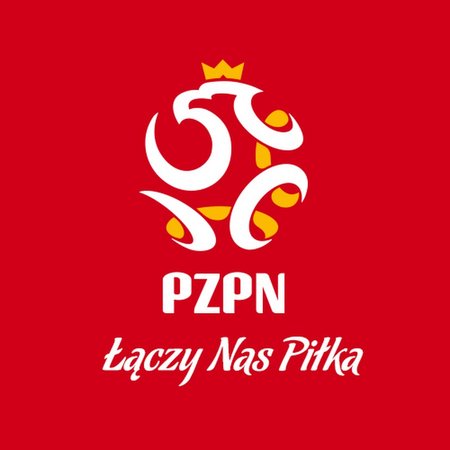 He continued throughout the entire qualifying round as his performance stayed flawless. No wonder then that when during the team’s preparatory camp at Arłamów before the tournament he again heard that he would be Szczęsny’s substitute, this very calm man reacted with great frustration and anger. He could not accept the fact that he was to miss yet another big event, being only a replacement. He felt that thanks to his good performances in Swansea and during the qualifiers he deserved to be given a chance during the Euros. When Poles inaugurated the championship by winning 1:0 against Northern Ireland in Nice, Fabiański was on the bench.
He continued throughout the entire qualifying round as his performance stayed flawless. No wonder then that when during the team’s preparatory camp at Arłamów before the tournament he again heard that he would be Szczęsny’s substitute, this very calm man reacted with great frustration and anger. He could not accept the fact that he was to miss yet another big event, being only a replacement. He felt that thanks to his good performances in Swansea and during the qualifiers he deserved to be given a chance during the Euros. When Poles inaugurated the championship by winning 1:0 against Northern Ireland in Nice, Fabiański was on the bench.
Nevertheless, he ended the European Championships as a hero. As Szczęsny was injured, it was Fabiański who took over the goal in the second match. His performance was flawless, also in the next game against Ukraine. He kept a clean score until the phenomenal shot by Xherdan Shaqiri in the 1/8 round against Switzerland. Still, his great interventions helped Poles draw so that the match had to end in penalty kicks. Fabiański’s save of Granit Xhaka’s shot from a free kick was one of the most spectacular in the entire tournament. After the loss in the quarterfinals against Portugal, Fabiański had tears in his eyes when apologising for not having saved a single penalty. He said that he felt he should have helped more, but nobody held him responsible – to most supporters he was a true hero.
He again had a good start during the World Cup qualifiers and played in seven out of ten matches. Szczęsny played in three games, the last two. When it comes to friendly games, the two goalkeepers play interchangeably. Fabiański says that no final decision has yet been made and the rivalry is still on, and he does not want to call himself “the first goalie”.
However he learnt how to be patient. Still, Euro 2016 was his biggest lesson: - Life has shown me that when one is a diligent worker, does not go crazy, sticks to his values, then good fortune will finally turn to him – this said by a man who throughout his entire career had to prove that he is a safe pair of hands.
Author: Piotr Żelazny
Source: „Rzeczpospolita”

06.06.2018
